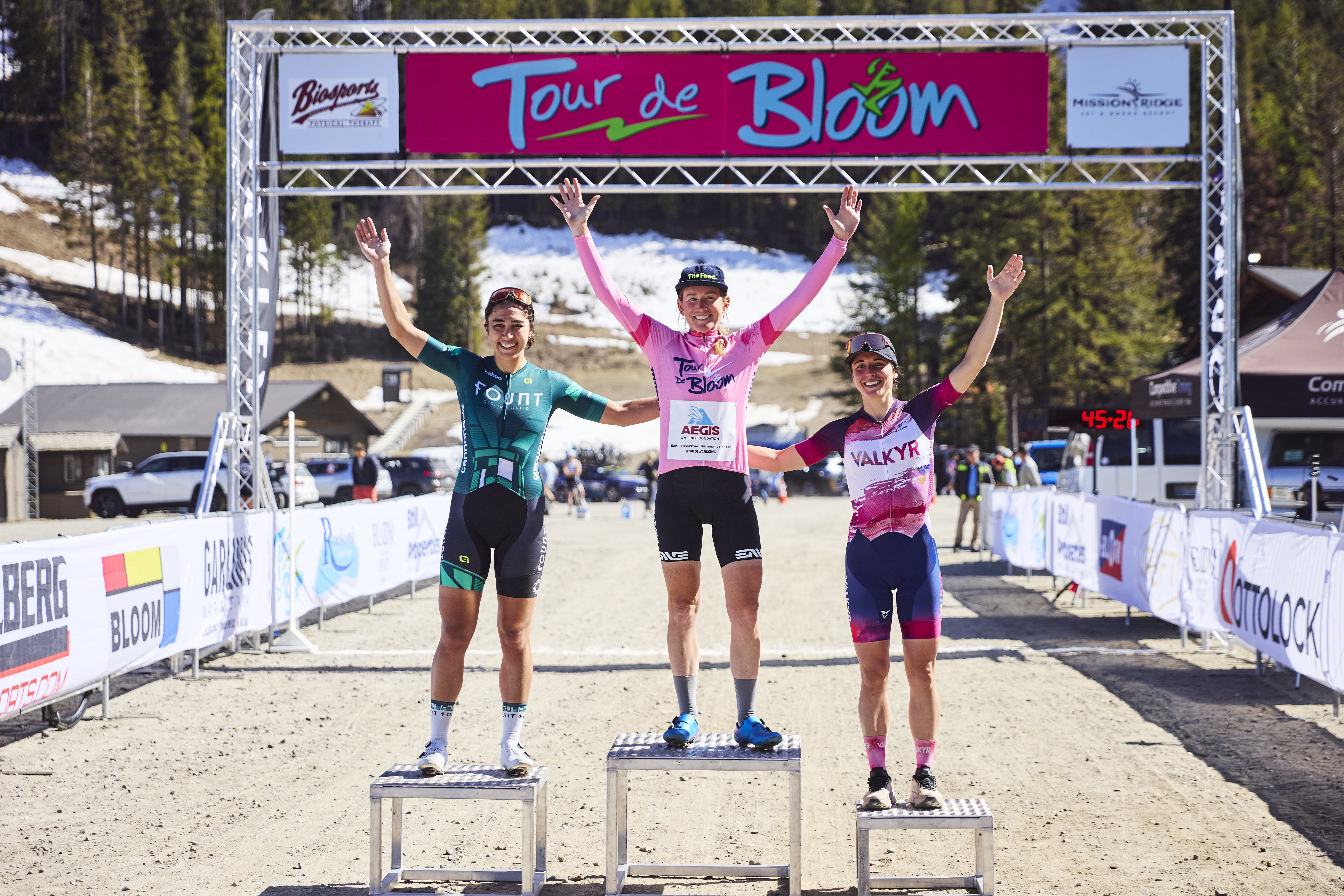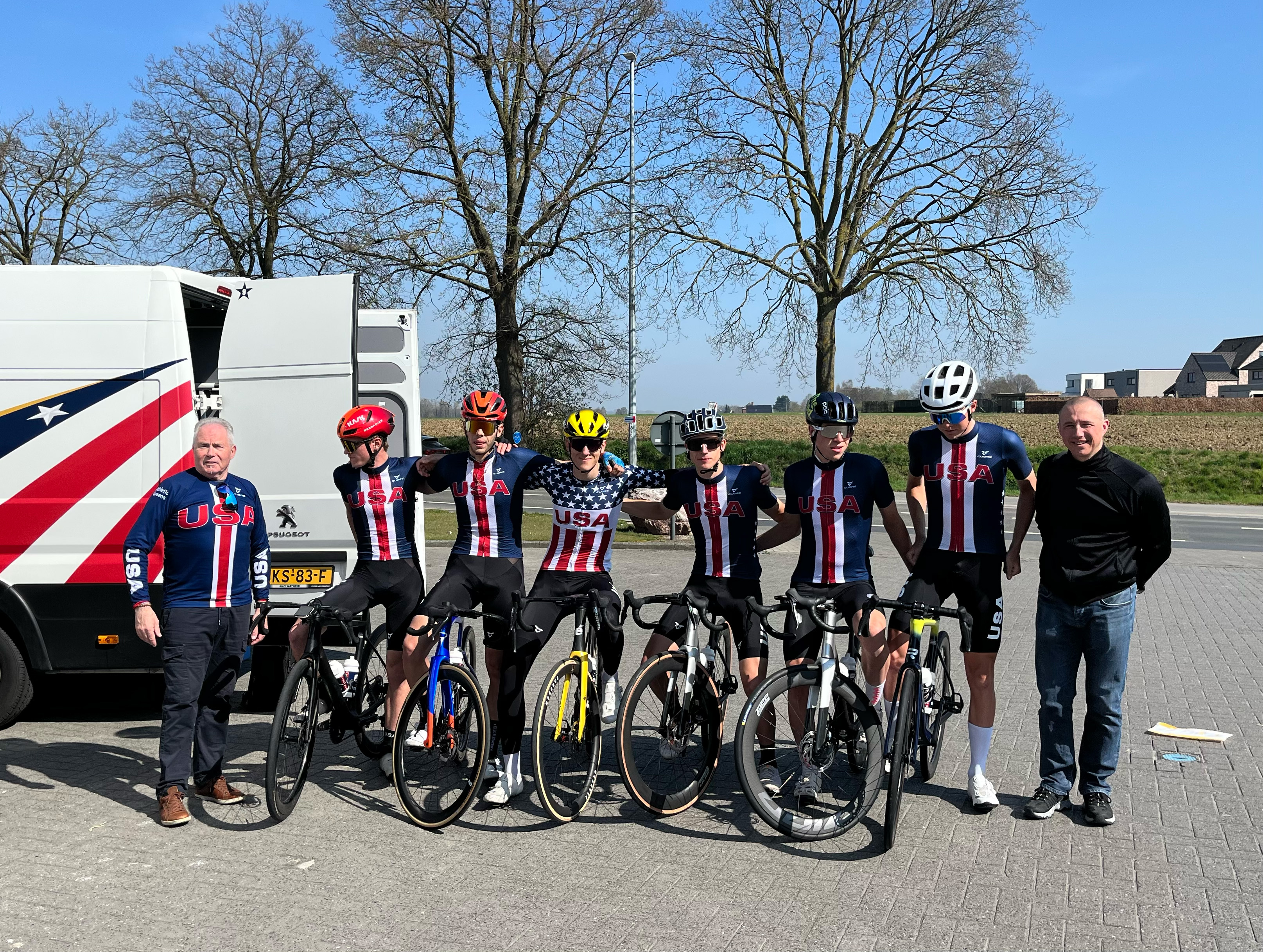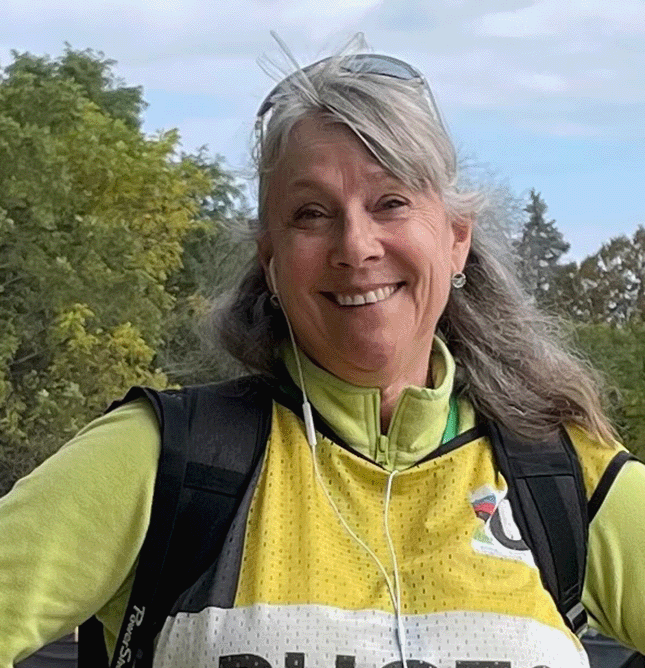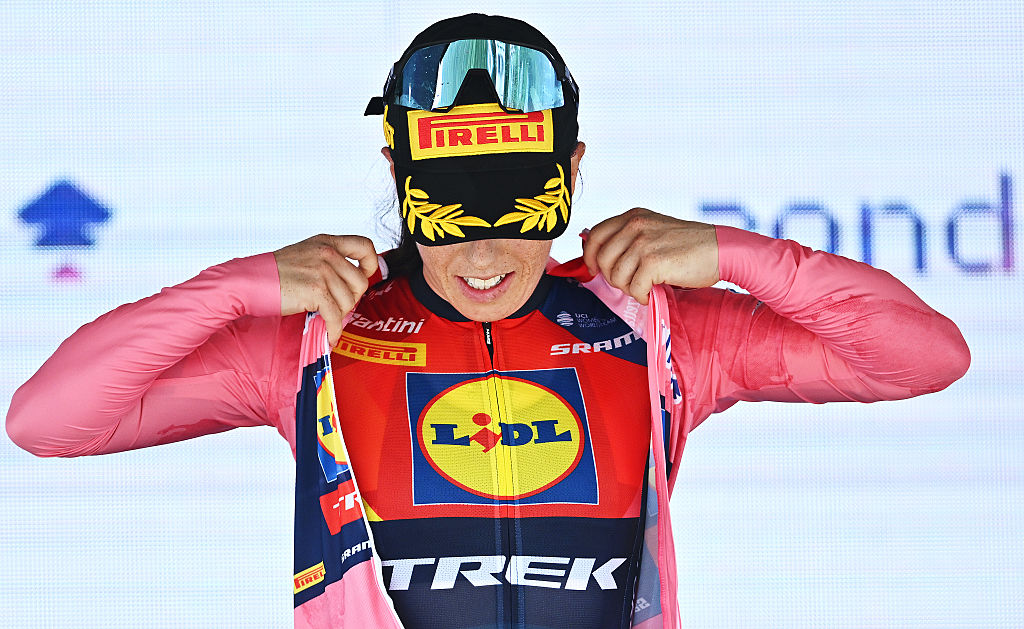'The domestic racing scene I was part of is almost non-existent' – Gavin Mannion says cycling in the US is different, not dead
USA's UCI calendar may be smaller, but next generation of riders use gravel and collegiate racing on pathway to road

The latest race content, interviews, features, reviews and expert buying guides, direct to your inbox!
You are now subscribed
Your newsletter sign-up was successful
What has become of road racing in the US? Is the discipline as a whole on a downward spiral, or is it obscured by an ever-changing calendar now filled with gravel races and non-UCI-sanctioned events? Will the big teams like UnitedHealthcare ever make a comeback? Or is a new generation of privateers here to stay?
A decade ago, all-star casts of international riders clashed on the big climbs of California, Colorado, Utah and the Ozarks of Arkansas, bringing WorldTour winners like Sepp Kuss (Visma-Lease a Bike), Matteo Jorgenson (Visma-Lease a Bike), Neilson Powless (EF Education-EasyPost), Chloé Dygert (Canyon-SRAM zondacrypto) and Ruth Edwards (Human Powered Health).
Since the last major race, the Tour of Utah, went away in 2019, the road calendar has shrunk to just two UCI stage races (only one for men) and a pair of one-day races (Gran Premio NYC for men only).
However, road racing in the US is not ready for an epitaph yet. There may be fewer UCI-level races and smaller teams, but there is no shortage of racing opportunities. The path to a WorldTour career may not be as straightforward either, but talented riders are there, says Gavin Mannion, a former UnitedHealthcare pro turned national team coach for USA Cycling.
"I think it's definitely an interesting place that US cycling is in. But yeah, I mean, just look at the results at the highest level, something's working," he told Cyclingnews.
"It seems like we have the most high-performing athletes at the highest level of the sport than we ever had, on the men's and women's side on road, mountain bike, track, including the Olympic level. It seems like we're killing it."
Magnus Sheffield (Ineos Grenadiers) made his mark as a 17-year-old at the Valley of the Sun Stage Race; his teammate AJ August mixed cyclocross prowess with road skills, grabbing wins at the Green Mountain Stage Race and the Redlands Bicycle Classic before signing with Ineos, too. Lily Williams (Human Powered Health) and Skylar Schneider (SD Worx-Protime) earned their stripes at criteriums like Sunny King Criterium, Armed Forces Cycling Classic and Intelligentisia Cup series, now Chicago Grit, before ascending to the sport's top level.
The latest race content, interviews, features, reviews and expert buying guides, direct to your inbox!
The longevity remains with many races, but rarely are organisers looking to get a UCI license. This year, the women's peloton gained a spark with the Tour de Bloom in the Pacific Northwest, upgrading to UCI 2.2 level to join the Tour of the Gila on the international calendar. There will also be a UCI 1.1-ranked women's one-day race in Baltimore on September 6 held jointly with the men's 1.Pro Maryland Cycling Classic.
"It's exciting to see we have UCI races coming back to America. We had quite a few back in the past, and they'll slowly build again," said US all-rounder Lauren Stephens, who swept the GC titles at the two US UCI stage races this spring with the Aegis Cycling Mixed Team. "We had a little lull with COVID, but I think that we see that it is coming back."
However, Stephens used a non-traditional path to continue racing for her 12th pro season, switching to a self-supported off-road campaign for the first time in her career, then joining a new startup Aegis Cycling Foundation club team for the UCI-sanctioned stage races. The flexibility offered as a privateer allowed her to compete at non-UCI events like Valley of Tears Gravel, where she was third this year, and The Growler, which she won.
Gravel's rise in popularity isn't the main culprit for a decline in large road events, but Mannion said it is a part of the equation with limited sponsorship dollars across the cycling industry, which are the low-hanging fruit for events and teams. There is a big bang for the buck for a company sponsoring a couple of gravel riders rather than a full Continental team.
"The domestic racing scene that I was a part of for a long time is almost non-existent at this point. Redlands is still hanging on, and Gila, sort of the only two races that were part of the old NRC or PRT. It's definitely interesting. Things were sort of declining before the pandemic, and then the pandemic was sort of the final nail in the coffin for a lot of races and a lot of teams," Mannion said.
"I don't know what the path back looks like, or if there is one. I think it's just different now, with all the different disciplines, like gravel. I don't know that it's ever going to look the same."
'Brutal' path on road for juniors

So, how does young talent get discovered these days and find a career in road racing? According to Mannion, "we have tons of talent and tons of international success," but motivated riders may not have as many domestic races to showcase their talents. He said that making the jump from the junior ranks to pro ranks now doesn't have a true under-23 transition like in his days.
"I think before you sort of had to know someone, it was just a lot more convoluted of a process, and you had until the end of your under-23 career to sort of make plans," said Mannion, who retired from racing in 2023.
"I think we're probably just lagging behind the times, because every other sport is looking at 14, 15, 16 year olds and tracking them for years and years, and by the time they're 18 or 19, they're in the pipeline to be a professional."
Rachel Heddermann, who used to manage UnitedHealthcare and now coaches junior women for USA Cycling, saw both the number of teams and stage races decline after the coronavirus pandemic, but athletes kept riding bikes.
"There aren't as many races as there were 15 years ago, but the riders are still finding different ways to come into it. So I think, in terms of looking at the next generation, they are coming in through gravel," Heddermann said.
"Things ebb and flow. And I think there are different races coming through, like the Tour de Bloom. And races like Valley of the Sun and Tucson Bicycle Classic have been around for a while, but maybe they're becoming a little bit bigger."
Juniors between the ages of 15-18 can get experience, and get noticed, in a USA Cycling Junior Gravel National Series, which is almost as robust as the Junior Road National Series. Racing at USA Cycling Pro Road Championships for juniors 17-18 is the highlight of the early summer. High school cycling leagues like National Interscholastic Cycling Association (NICA), collegiate teams, and development teams like DC Devo and El Grupo Youth Cycling have spots for women, but the more robust development teams like Hot Tubes and EF Education-ONTO focus on the men.
"Brutal and almost non-existent" is how Ignacio Rivera de Rosales, co-founder and head coach of long-standing El Grupo development out of Arizona, described the landscape for young women these days. "College is the best path forward to get to race and pursue a career."
Nicola Cranmer, who has shepherded many young female riders to professional and Olympic Games success with the Virginia's Blue Ridge TWENTY28 squad, agreed there was not a clear path, but she was more optimistic.
"A young female who wants to be a professional cyclist will find a way. There's never been an exact pathway. Whether it's through getting noticed with criterium racing teams or getting to the road from NICA or collegiate sports as well. There's no [one] way to do it. They just start racing," Cranmer told Cyclingnews.
"There's plenty of racing. I mean, we're having to pick and choose. We can't do all of it. Our athletes race with national teams as well. So we didn't do Redlands, we chose a Virginia race to try and because it's in our home state, and we wanted to support the Tour of Newport News, which is fantastic. We're not doing Gila because it's the week before collegiate nationals, and coaches didn't want them to do it.
"We ended up sort of pivoted and focused on Tour de Bloom. So I think doing Redlands, Gila and Bloom all stacked up is a lot. There are tons of criteriums, too. I mean, there's nothing more valuable than going to Tour of America's Dairyland and racing 11 straight races to bring a team together and build skills. It's not big endurance, but there's a lot that can be accomplished during those races."

Jackie has been involved in professional sports for more than 30 years in news reporting, sports marketing and public relations. She founded Peloton Sports in 1998, a sports marketing and public relations agency, which managed projects for Tour de Georgia, Larry H. Miller Tour of Utah and USA Cycling. She also founded Bike Alpharetta Inc, a Georgia non-profit to promote safe cycling. She is proud to have worked in professional baseball for six years - from selling advertising to pulling the tarp for several minor league teams. On the bike, she has climbed l'Alpe d'Huez three times (not fast), and spends time on gravel around horse farms in north Georgia.
You must confirm your public display name before commenting
Please logout and then login again, you will then be prompted to enter your display name.
